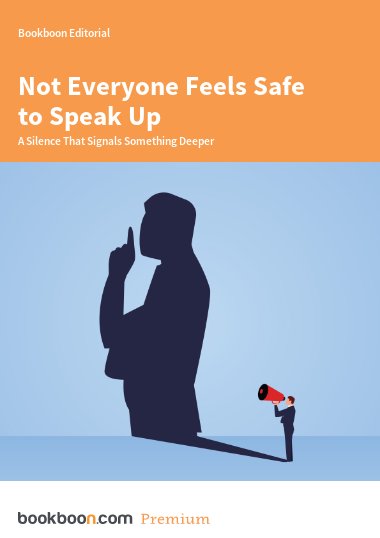Workplaces often emphasise that they support openness. You’re encouraged to ‘Bring your whole self’ and ‘Speak up’. But those words ring hollow if the environment isn’t built to make everyone feel safe to do so.
That gap between intention and reality shows in subtle moments - like team meetings, where a team member’s silence can be easily misread. To some, it may look like agreement, disinterest, or a lack of ideas. But more often than not, it signals something deeper: people don’t feel safe. If psychological safety isn’t evenly distributed across the team, neither will opportunities.
Think of the employee who’s been talked over in every meeting. The one who gets labelled “too intense” for raising concerns. A new starter who can’t see a single person like themselves in a leadership position. The frontline worker who sees everything but is asked nothing. These are dynamics that define the daily working experience.
To make wellbeing equitable, you have to build trust with intention. Here’re some start points:
Encourage even contributions: make space for quieter voices in meetings - don’t just let it become a stage for the most confident ones.
Respond well to feedback: how you react matters. Dismissiveness or any negative reaction to feedback will discourage the person from giving their opinion in the future.
Show vulnerability: leaders who admit what they don’t know or got wrong are already pushing to improve psychological safety within their team.
Spot patterns: who always speaks? Who never does? Make the invisible visible.
Follow through: if someone shares, act on it. Otherwise, you give the impression that the person shouldn’t have bothered.
If your organisation only measures wellbeing in terms of how many people are using the wellbeing benefits or engagement scores, you’re missing the entire picture. Safety and belonging need to be cultivated through everyday signals and systems.
The question you ask yourself shouldn’t be “why aren’t they speaking up?”, but rather “what have we done-or not done-to encourage silence and a fear of speaking up?” Start with gaining a better understanding of individual differences and a focus on pushing for more empathetic environments.
When people don’t feel safe to speak, they’re not just being quiet - they’re being overlooked. That silence can hold your team culture back more than you realise.
To dig deeper into how equity shapes employee wellbeing, watch expert Janice Chaka break it down in her virtual classroom Equity in Employee Wellbeing.


